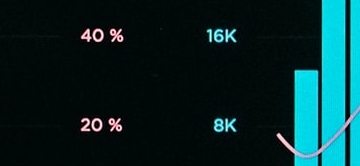Defeating Covid-19 and getting the economy back on track will not be easy. In this context, we will need to be inventive, as some countries have been in tracing the movements of individuals. Linked to systematic testing, such techniques make it possible to alert individuals who have been in the vicinity of infected people and to monitor their adherence to containment restrictions. As useful as these techniques are for public health, one cannot help but shudder at the thought that the State is getting into the habit of continuously monitoring our movements and social lives.
We need to think about new rules governing the use of our data. This problem is not new. The gathering, analysis, and synthesis of data by artificial intelligence and facial recognition can put an end to anti-social behavior; it can also produce dystopias. China was planning to implement a "social score" in 2020 and we can expect that this will soon be adopted by other countries. Each individual (and each company) will be given a public score by the State, reflecting their behavior in terms of the environment, payment of loans and taxes, services rendered to the community, propagation of fake news, their social network and, more generally, all the components of their private and public life. These criteria, their interpretation and weighting will be determined by the central power. This score will affect the conditions of access to employment and to goods and services, as well as social life (friends, companions, work). We can bet that this social score will make citizens responsible for anti-social behavior, but it will also provide governments with a low-cost opportunity to monitor and suppress behavior they deem deviant from a political, religious or societal point of view.
The Covid-19 crisis reinforces this point: the surveillance of biometric data, telephones and social contacts of individuals may be beneficial to stem the tide of an epidemic, but could subsequently generate ostracism, discrimination and social control. We can deviate from the rules in an emergency provided that we return to "normal" when there is no longer any risk of contagion. The risk, particularly in countries like Hungary where the rule of law is fragile, is of course that the democratic system will not return to normal.
Academic and businesses are considering how to retain only the benefits of this surveillance, without allowing the State to use it for other purposes; for example, an application could tell its users that they have been in contact with a carrier of the virus, without revealing whom or downloading other data stored in the phones. But the problems are not just technical; as in the case of containment, we cannot necessarily trust goodwill and assume that all individuals will sign up to scrupulously protect others from infection. Unfortunately, there has been no open debate about the costs and benefits of forcing participation into such a scheme, and no planning of public policies to avoid the side effects of this otherwise reasonable policy.
Like for the social score, politicians and intellectuals have not been sufficiently far-sighted. We are fighting yesterday’s war.




